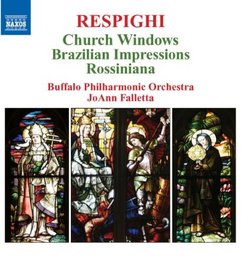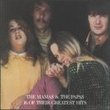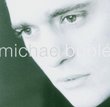| All Artists: Respighi, JoAnn Falletta, Buffalo Philharmonic Orchestra Title: Respighi: Church Windows; Brazilian Impressions; Rossiniana Members Wishing: 0 Total Copies: 0 Label: Naxos Original Release Date: 1/1/2007 Re-Release Date: 11/20/2007 Genre: Classical Styles: Forms & Genres, Theatrical, Incidental & Program Music, Historical Periods, Classical (c.1770-1830), Symphonies Number of Discs: 1 SwapaCD Credits: 1 UPC: 747313271122 |
Search - Respighi, JoAnn Falletta, Buffalo Philharmonic Orchestra :: Respighi: Church Windows; Brazilian Impressions; Rossiniana
 | Respighi, JoAnn Falletta, Buffalo Philharmonic Orchestra Respighi: Church Windows; Brazilian Impressions; Rossiniana Genre: Classical
Although Respighi's reputation rests on the justly celebrated trilogy of Roman tone poems, he also wrote a number of distinguished works in other forms. The four symphonic impressions Vetrate di chiesa (Church Windows) be... more » |
Larger Image |
CD DetailsSynopsis
Album Description Although Respighi's reputation rests on the justly celebrated trilogy of Roman tone poems, he also wrote a number of distinguished works in other forms. The four symphonic impressions Vetrate di chiesa (Church Windows) began life as Tre preludi sopra melodie gregoriane for piano, with the addition of a fourth movement to make a symphonic suite. Making full use of indigenous melodic and rhythmic shapes, Impressioni brasiliane (Brazilian Impressions) are a musical snapshot of the composer's visit to Brazil in 1927. Rossiniana, Respighi's orchestration of piano trifles by Rossisi, is one of the most brilliantly and colorfully scored works. It concludes with a wonderfully infectious Tarantella. Similarly Requested CDs
|
CD ReviewsA Romantic Master Dean R. Brierly | Studio City, CA | 01/04/2008 (4 out of 5 stars) "Although my musical taste tends toward the avant-garde and experimental, I must confess that Respighi has long been one of my favorite composers. An unashamed romantic who looked to ancient musical forms (particularly Medieval and Renaissance) for inspiration, he created music of rich harmonic grandeur and deep emotional resonance. These are the defining qualities of the symphonic suite "Church Windows," which is given a spirited and sincere performance on this Naxos disc by the Buffalo Philharmonic under the baton of JoAnn Falletta. This is music of almost overwhelming beauty buttressed by a strong undercurrent of dark lyricism. Respighi sustains an impressionistic atmosphere throughout the four movements, enhanced by marvelous touches of color on celeste, harp and pipe organ. Falletta is fully tuned in to the music's dramatic ebb and flow, exposing all the emotional nuances in its lush sonorities and all the drama in its orchestral thunder. "Brazilian Impressions" is among Respighi's more delicate and subdued works. The bucolic first movement pays tribute to the beauty of Brazil's natural environment; the more spirited third movement, with its rhythmic syncopation and colorful harmonics, successfully evokes the country's native musical forms. The composer's "Rossiniana: Suite for Orchestra," the final offering on this disc, is a musical tribute to Rossini, in particular the latter's piano music. Respighi's gift for melody is apparent in the buoyant, waltz-like first movement, the moody dramatics of the slower-paced second, and the near-frenetic, yet always graceful final movement. Respighi was all about elegance, clarity of expression and a concern for melody, qualities that never go out of style. Falletta and the Buffalo Philharmonic carry out Respighi's musical conception with heartfelt and symbiotic fidelity." The kind of radio experience you pray for! Conal | 04/15/2008 (5 out of 5 stars) "One of the reasons we listen to music on the radio is we hope to be surprised: If you tune in midway through a piece, the music has a chance to bypass your usual prejudices and expectations. Maybe it turns out to be Haydn, for instance, but you would have sworn all along it was Beethoven (because it had such an edge on it and was so intellectually satisfying, it just "had to be Beethoven"; but it wasn't). On another occasion, maybe it turns out to be a brand-new name out of contemporary Russia or Poland, and it's really REALLY good stuff. This kind of experience is rare, but when it happens, it can be electrifying (and chagrining and educational). In this case, I was driving to work one morning and I tuned in to the middle of Rossiniana, 100% clueless, just the way I like it. Within seconds, I knew I had stumbled onto something extraordinary, but could not for the life of me imagine who the composer might be. (It was track 9, the Lamento that I had stumbled on, literally in the dark around 5:00 a.m.) At one point, the following hypothesis flitted across my mind: "A recently discovered admirer of Mahler who learned the maestro's language but mercifully left behind that certain 'sicko' quality of his idol?" That's how confused I was. But I loved it, and by the time we were on tracks 10-11, I thought (or perhaps shouted in my excitement?), "In a science fiction scenario, if I had the proverbial 'one chance to save the world' by converting a nonmusician into a musician for some reason, THIS is the recording I would bring along for the purpose. Nothing I've ever heard matches its color and emotional power" (except maybe the Schoenberg Serenade Opus 24, but that's a very different kettle of fish). Echoing one of the other reviewers on this site, I'm one who has spent many years listening to `contemporary music', never to Respighi-on-purpose, so it feels funny to be so much in his thrall just now. Anyway, long story short: Yes, buy this CD and listen to Rossiniana as conducted by JoAnn Falletta!" Respighi, et al Jim Shine | Dublin, Ireland | 11/27/2007 (4 out of 5 stars) "I'm sure there's some kind of law that any review of any Respighi disc is obliged to mention his Roman trilogy, so let's get that out of the way first: yes, his Roman trilogy is great, and Naxos has form in this area - I really like the Batiz recording from way back. So every subsequent piece we hear by Respighi must face comparison with those works. In fact I found myself comparing the contents of this disc not with Respighi's own music, but with that of other composers. For instance, the first movement of Church Windows, depicting the flight of the Holy Family into Egypt, reminded me in principle of Borodin's In the Steppes of Central Asia, and the aerial battles of St Michael brought to mind Walton's Spitfire Prelude. These sorts of comparisons are not really fair - we shouldn't criticise something for not being what it isn't - but I found that my attention wasn't being grabbed. Perhaps it has something to do with the fact that the title Church Windows, and the titles of its movements, came after the music was composed, so to some extent this is generic music with a specific idea papered over it. If the movements were just numbered 1 to 4, would they sound better? Certainly the "flight" into Egypt might be better described as a stroll.
With Brazilian Impressions, of course the first composer you're going to think of is Villa-Lobos, which again is not a fair comparison as these are only Respighi's impressions from a trip there in 1927. If this work is anything to go by, he must have had a relaxing time there, the second movement's snakes notwithstanding (although I must take issue with the booklet notes' claim that this is "alarmingly sinister" - I'm not sure it would be especially out of place in Saint-Saens' Carnival of the Animals). Given my comments so far, it's ironic that when Respighi is deliberately evoking a particular composer, I find him on top form. Rossiniana, based on some of Rossini's piano music, is the highlight of the disc, and especially its Lamento (in the style of a typical Rossini dramatic aria, but filtered through another hundred years of Italian opera) deserves to be widely known. As with the other works, there's plenty to hear, but this time Respighi seems to be really enjoying himself. I suspect that if you like orchestral music for, as it were, the sake of orchestral music, then you'll find a lot here to enjoy; for me, two-thirds of the disc lacked the killer punch, but the final third made up for it." |

 Track Listings (11) - Disc #1
Track Listings (11) - Disc #1








